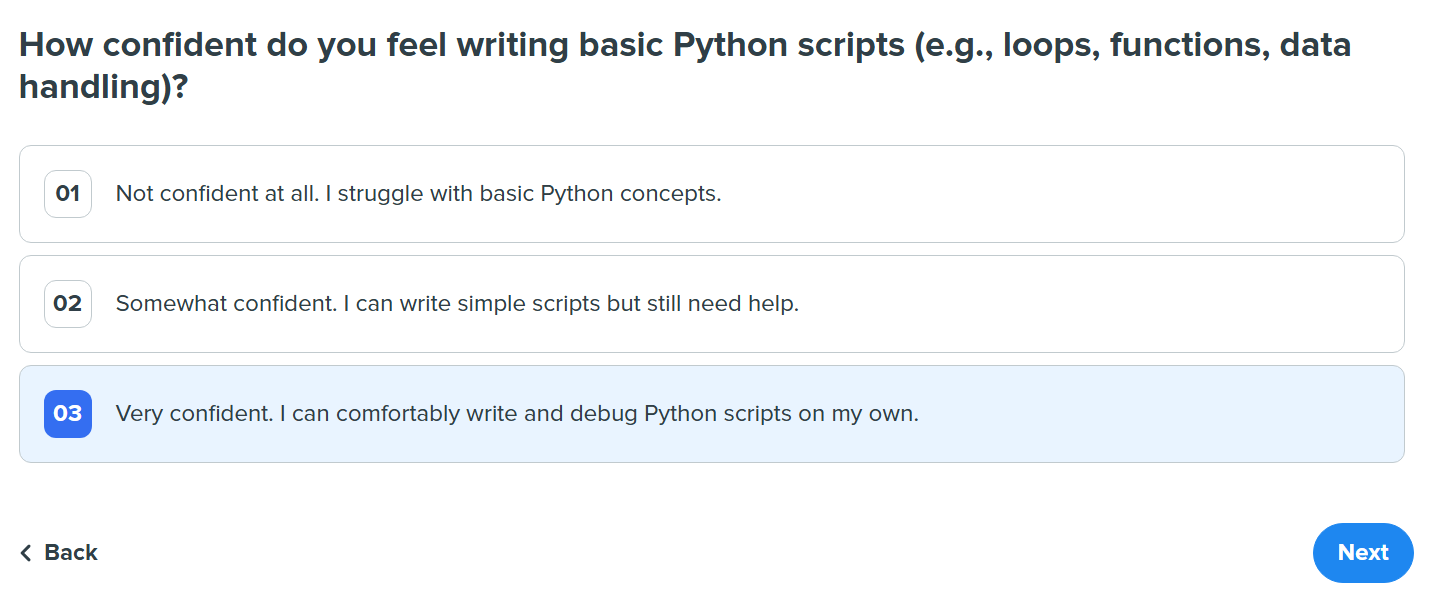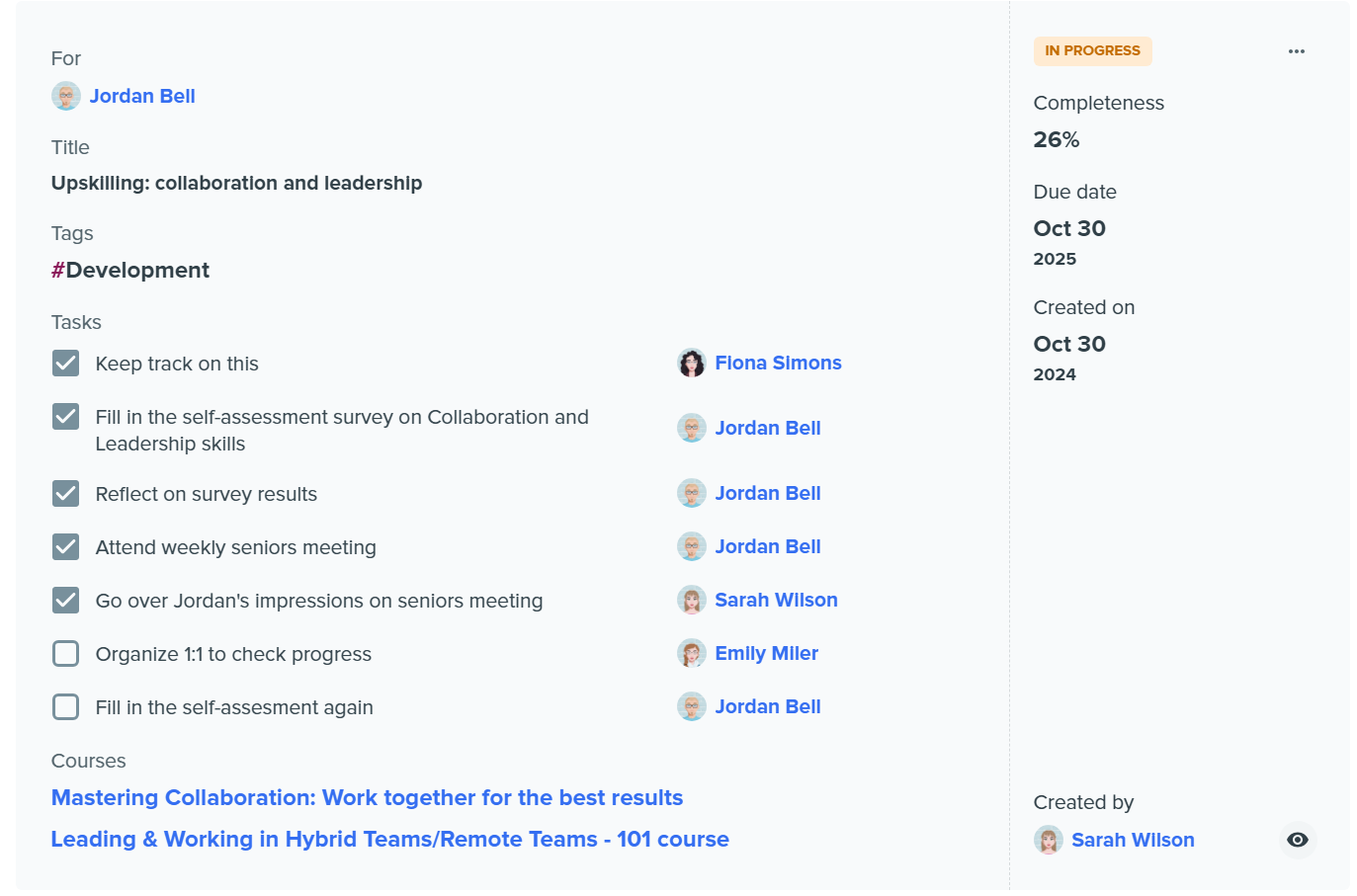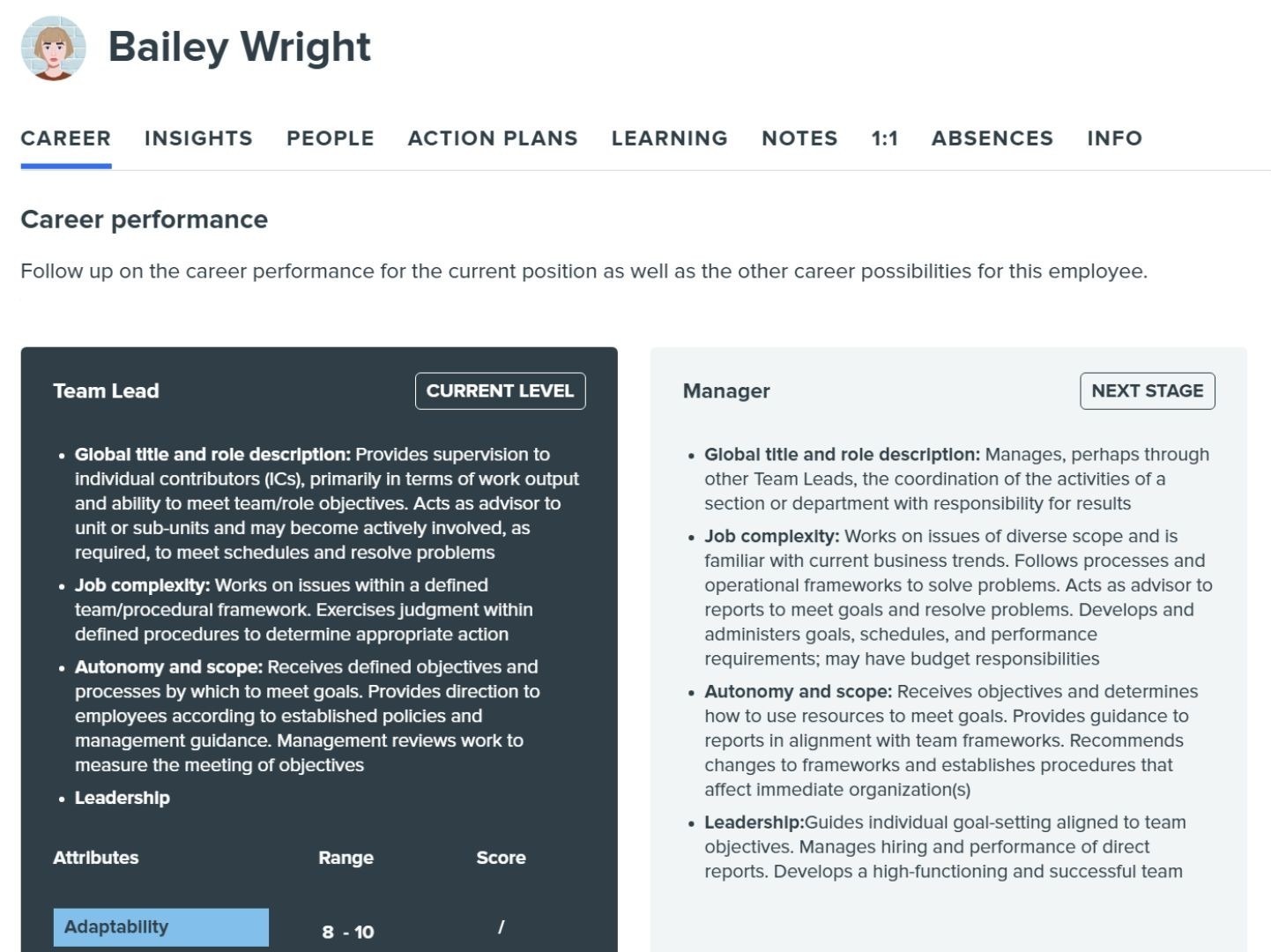Most managers recognize that their teams require stronger technical skills, particularly in areas such as AI, cloud computing, and cybersecurity, as these fields are evolving rapidly.
However, once you attempt to define which skills matter and how to develop them, things become complicated. Generic LMS platforms feel too broad. Training links sit untouched in Slack. And tracking who’s learning what? Usually buried in spreadsheets.
In this article, we’ll cut through the noise and show which tech skills managers are prioritizing in 2025 and how to build them inside fast-growing teams.
Why tech teams struggle to keep up with tech skills
The skills your team needed two years ago won’t be enough in 2025. AI tools are transforming the way work is done. Cloud infrastructure keeps evolving. And cybersecurity threats are rising fast. However, most teams are still uncertain about which tech skills to focus on, and it shows.
Managers often rely on gut feeling or outdated assumptions. There’s no clear overview of who has which skill, where the gaps are, or how learning is progressing. Excel sheets and Notion tables become increasingly challenging to maintain as your team grows past 20–30 people.
The biggest risk? Your team stops being futureproof. Without a structured approach to skill development, you may quickly find they’re no longer equipped to meet market demands, deliver cutting-edge products, or win top-tier clients. The result? Skill growth becomes reactive, uneven, and hard to measure. Talented employees stall out. Promotions are subjective. Leaders struggle to prove the ROI of their L&D efforts.
Common learning methods and why they don’t work anymore
Most teams attempt to address the skills gap with good intentions, but often rely on ineffective systems.
They collect course links in Slack, add a few AI tutorials to the company wiki, and sign up for a generic learning platform, hoping people will use it. But without structure, none of it sticks.
- There’s no baseline: you don’t know what your team actually knows.
- There’s no focus: everyone gets the same resources, regardless of role or project.
- There’s no tracking: you can’t tell who’s learning what or whether it’s working.
So even when teams invest in learning, nothing changes. People get overwhelmed, distracted, or lose interest.
The best tech skills to learn in 2025
Managers aren’t just hiring for frameworks and certificates anymore. The real value lies in skills that enable teams to ship better, work faster, and adapt when the landscape shifts. Below are four tech skill areas that are increasingly critical for tech teams.
AI & prompt engineering
AI tools like ChatGPT, GitHub Copilot, and Claude have become standard parts of a developer’s toolkit. Writing effective prompts is no longer a niche skill; it has a direct impact on output quality and productivity. Prompt engineering has emerged as a crucial hard skill across industries, enabling teams to design, test, and iterate with AI assistants, solve problems more efficiently, and reduce cognitive load.
Separately, Machine Learning (ML) involves building and training AI models and remains a specialized technical field primarily relevant to dedicated AI and data science roles. It’s essential to distinguish between these areas, as prompt engineering focuses on interacting effectively with AI tools, while ML concerns the creation of models themselves.
💡 According to Forbes, AI, and machine learning are among the top five hard skills companies are hiring for in 2025. That’s not just for AI roles; it’s becoming baseline knowledge for most product and engineering teams.
Data analysis & automation
Whether someone is building a product or running operations, understanding how to work with data is a core requirement. This means interpreting usage metrics, identifying bottlenecks, and automating repetitive tasks. Tools like SQL, Python, Airtable, and Looker are becoming standard across roles, not just for data teams.
Cloud infrastructure (AWS, GCP, Azure)
As organizations grow, infrastructure complexity grows with them. Developers and leads need a working understanding of how services are deployed, scaled, and billed. Cloud fluency enables teams to plan more efficiently, debug issues faster, and prevent costly mistakes in production. This is no longer just a DevOps concern.
💡 According to Deloitte, 75% of organizations are increasing investments in cloud platforms, often tied to AI integration.
Cybersecurity awareness
Security is no longer a backend issue; every team member is involved. Misconfigurations, weak passwords, and careless data handling continue to be the most significant risks. Teams must establish baseline security habits across all roles, including the use of two-factor authentication (2FA), effective access control management, and understanding how to respond to phishing and incident alerts.
Underrated but critical: soft skills for tech teams
- Async communication → Crucial for distributed teams
- Critical thinking → Navigating rapid change and unclear problems
- Adaptability → Handling new tools and cross-functional collaboration
These skills don’t just keep teams productive; they keep them promotable. And they’re much harder to build without structure.
💡 According to Business Insider, companies are hiring more roles that combine AI fluency with emotional intelligence and communication skills. As AI takes over routine tasks, these human skills are what keep teams effective and promotable.
How CarGurus turned AI curiosity into a company-wide learning culture
A good example of this in action is CarGurus’ “AI Forward” initiative. Starting in October 2024, the company formed a 20-person cross-functional squad: product, engineering, legal, and sales, to explore AI integration across teams.
Members of the group engage in:
- Workshops to test AI tools;
- Guidance sessions to support adoption;
- Pilot projects tailored to each department’s needs.
Measuring success focuses on adoption metrics, including how often tools are used, team confidence levels, and attitudes toward AI, rather than just output numbers.
Within months, the majority of employees had begun incorporating AI into their workflows.
Key takeaway: Managers didn’t just share tutorials; they invested in hands-on learning, interdisciplinary collaboration, and emotional support during the transition.
CarGurus’ model demonstrates how structured, team-driven learning programs focused on relevant tech skills can boost engagement and real adoption.
How Kadar helps managers build tech skills without building a whole internal program

The CarGurus “AI Forward” program is an excellent example of how cross-functional learning, hands-on experimentation, and structured support can accelerate upskilling. But not every team has the time, budget, or executive buy-in to launch a 20-person internal squad.
That’s where Kadar comes in.
With Kadar, managers get the structure and visibility of a program like CarGurus without needing to build it from scratch.
Here’s how:
- ✅ Skill visibility and assessments → Kadar helps you understand where your team stands by offering built-in employee surveys for selected tech and soft skills, while also allowing you to create custom assessments for skills not covered. This flexible approach enables mapping each team member’s strengths and gaps through self-assessment, peer input, and manager feedback.

- ✅ Side-by-side comparison matrix → Instead of interviews and sessions to align perceptions, you see instantly where people overrate or underrate themselves, so you can coach with context.

- ✅ Learning plan integration → Kadar lets organizations import their learning content and link it directly to development plans, feedback, and skill frameworks, turning growth into a structured, trackable process.

- ✅ Trackable action plans → Unlike ad-hoc experiments, Kadar links skills to individual goals and tracks progress over time, so you can see what’s working.

- ✅ Everything in one flow → 1-on-1s, feedback, development goals, and career progress all in the same place, without extra tools or spreadsheets.

💡 CarGurus established its own AI working group to integrate learning into real-world work. With Kadar, you get that structure instantly, across your whole team.
Tech skills won’t build themselves, but you can build the system
Identifying which tech skills matter is just the first step. Helping your team develop them in a way that’s fast, relevant, and measurable is where most managers get stuck.
You don’t need to build an internal academy or run a 20-person task force. You just need structure: precise skill mapping, real-time feedback, and a way to track progress that doesn’t live in a spreadsheet.
That’s precisely what Kadar gives you.
What to do next
If your team’s growth plan lives in Notion, Slack, or a spreadsheet, you’re already behind.
Try Kadar for free with one team — explore skills visibility, test a real action plan, and see how development becomes trackable without building an internal program. No calls. No setup. Just start.


